B.C. minister, Opposition critic reject calls to expand non-medical safer drug supply
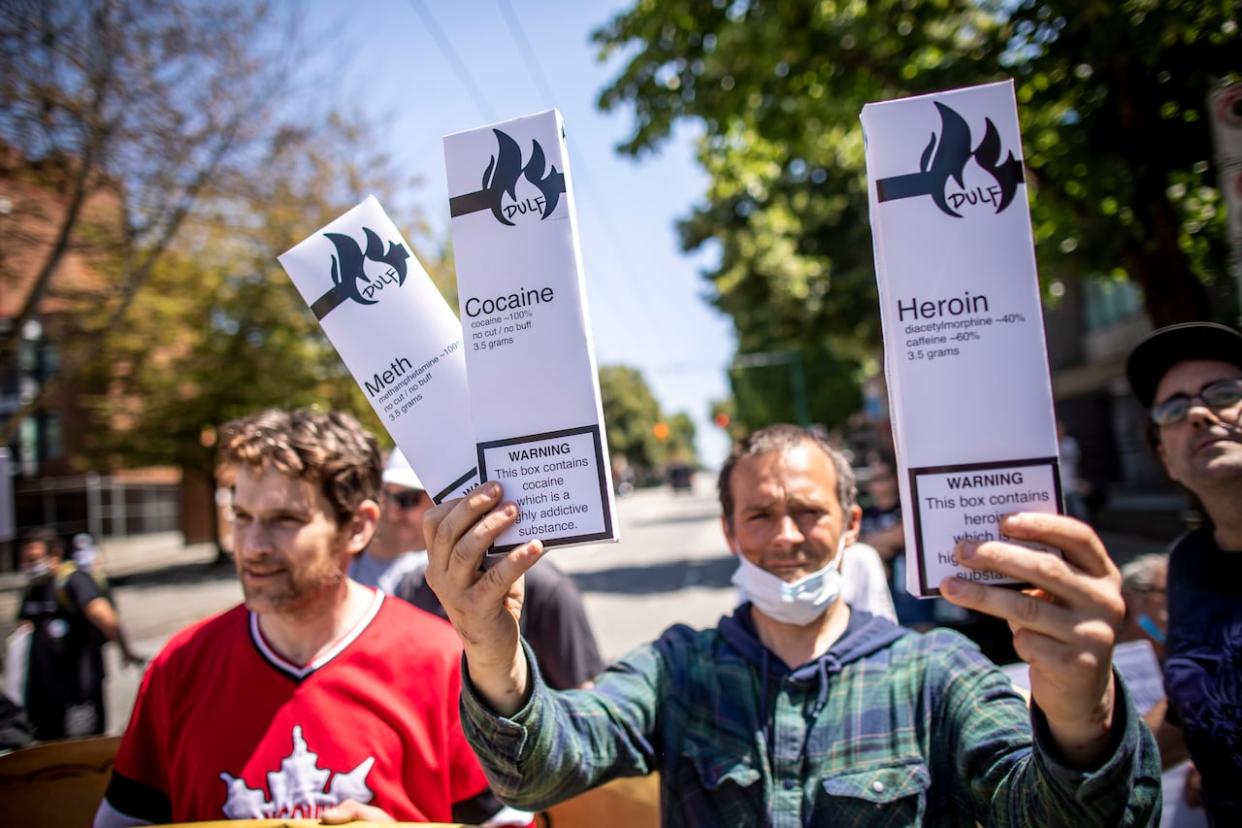
Both B.C.'s mental health and addictions minister and her Opposition counterpart are rejecting calls to expand prescription-free distribution of a safer supply of opioids and stimulants, a key recommendation in a recent report from the B.C. Coroners Service to help stop deaths from toxic drugs.
"Non-prescription models for the delivery of pharmaceutical alternatives are not under consideration," Minister Jennifer Whiteside wrote in a letter to Chief Coroner Lisa LaPointe on Nov. 1.
The coroners service's third death review panel report on the toxic drug crisis, released Wednesday, recommended that non-medically-prescribed safer supply be given to eligible people to help stop deaths, while the province works on expanding access to substance use treatment and prevention support systems.
B.C. United's mental health critic, Elenore Sturko, said the party rejects the idea of non-medically supervised safe supply.
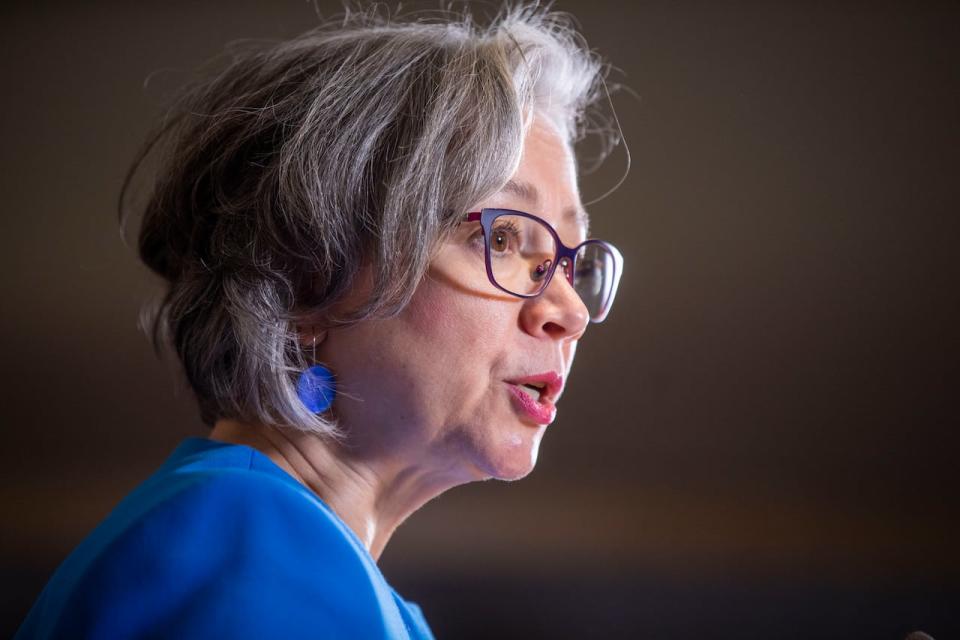
Jennifer Whiteside, B.C. Minister of Mental Health and Addictions, is pictured during a January 2023 announcement regarding the decriminalization of people who use hard drugs. In a Nov. 1 letter, Whiteside said non-prescription models for safer drug supply is not being considered. (Ben Nelms/CBC)
"We need to continue to address it as a medical issue, and recognize the importance of continuing to include medical practitioners, particularly those with significant expertise in addictions … in forming our treatment plans," Sturko said.
Sturko cited a report by B.C.'s Select Standing Committee on Health, released last fall, which acknowledged there were merits of non-medical safer supply but that connection with a health-care provider remained an "important safeguard."
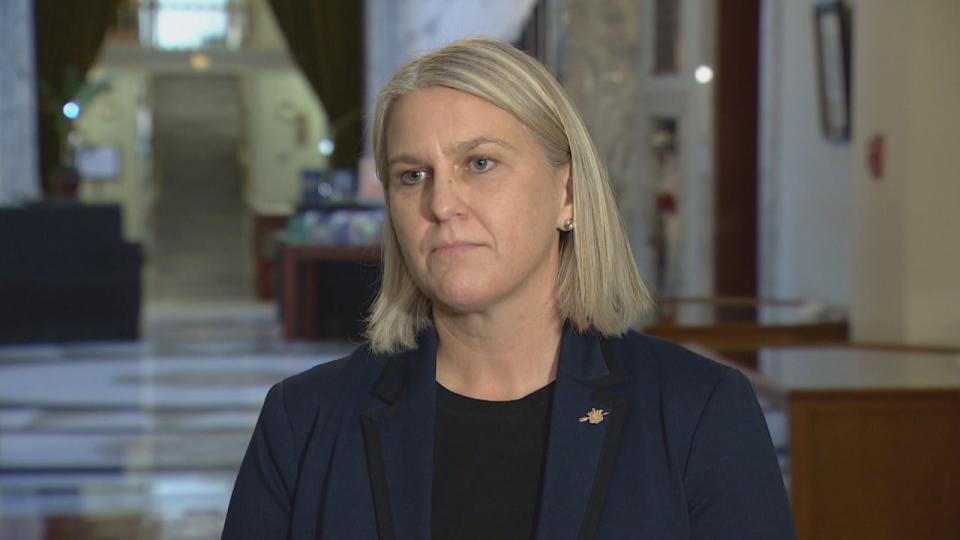
B.C. United MLA Elenore Sturko said her party rejects the idea of non-medical access to safer supply. Sturko spoke to reporters at the B.C. Legislature on Nov. 2, 2023. (Michael McArthur/CBC News)
The death panel estimates that 225,000 people in B.C. are currently at risk of death or injury from using illicit drugs.
Its report says about 5,000 people have access to provincially-regulated prescribed safer supply, and warns that B.C.'s struggling health-care system isn't capable of scaling up the current program to meet the need.
"To further overload that system in a timely manner to address this public health emergency, I don't think is realistic … which is why the recommendation is for a non-prescriber model," said Michael Eglison, chair of the death panel review.
Corey Ranger, president of the Harm Reduction Nurses' Association, said the current prescriber-based safe supply model is inaccessible for many and the province's failure to take more urgent action is "shameful."
"We need a full continuum of options available to people who use drugs," Ranger said.
"And that continuum includes an investment in non-medical, non-prescriber options for safe supply."
While non-medical access to safer supply is off the table, Whiteside said work is underway to expand health-care-prescribed pharmaceutical alternatives to illicit drugs, and that a report and recommendations on the topic, led by Dr. Bonnie Henry, are due in the coming weeks.
Activist group did what panel recommended: advocate
The politicians' rejections come as drug user advocates plan rallies in Vancouver, Victoria and Toronto in support of the Drug User Liberation Front (DULF), an activist group that has admitted to distributing illegal drugs to substance users deemed at risk of overdosing.
Two people were arrested in a raid on DULF's Vancouver office on Oct. 25.
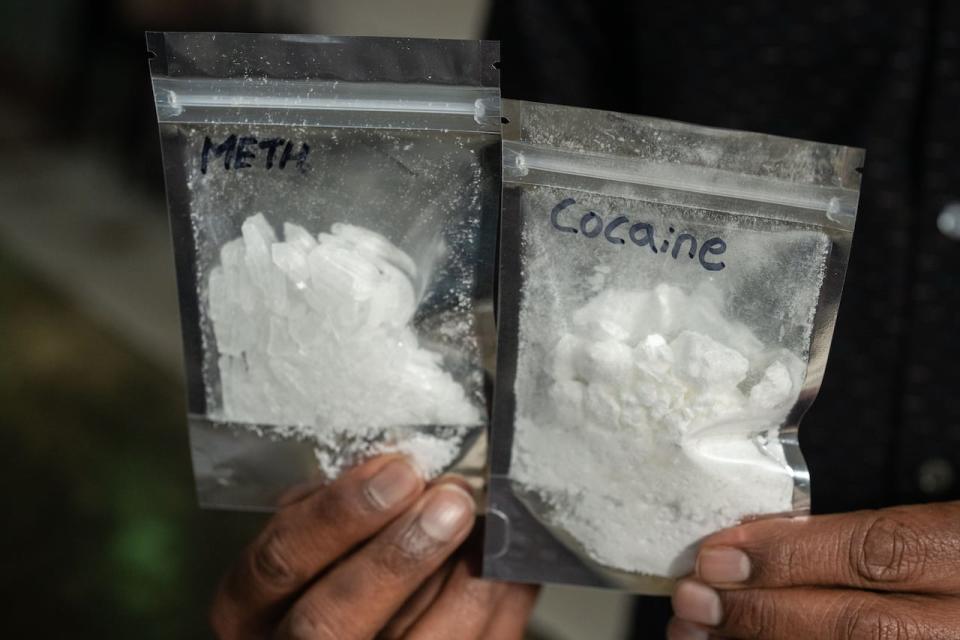
Bags of tested meth and cocaine for sale at DULF headquarters in Vancouver on Sept. 28, 2023. (Maggie MacPherson/CBC)
Garth Mullins, DULF co-founder and organizer of the Vancouver rally, said the Friday event is in response to the arrests of fellow co-founders Eris Nyx and Jeremy Kalicum, and protests what he calls an "ongoing attack" on harm reduction initiatives.
Mullins said since the arrests, people who were receiving tested drugs from DULF have turned to the black market.
The organization sought an exemption from Health Canada to run their program in 2021 and were denied, but they went ahead anyway. Mullins said the scale of the crisis justifies the organization's actions.
"Just like every other time in history, when marginalized people are faced with a law that leads to their further marginalization or even death, you've got to disobey that law."
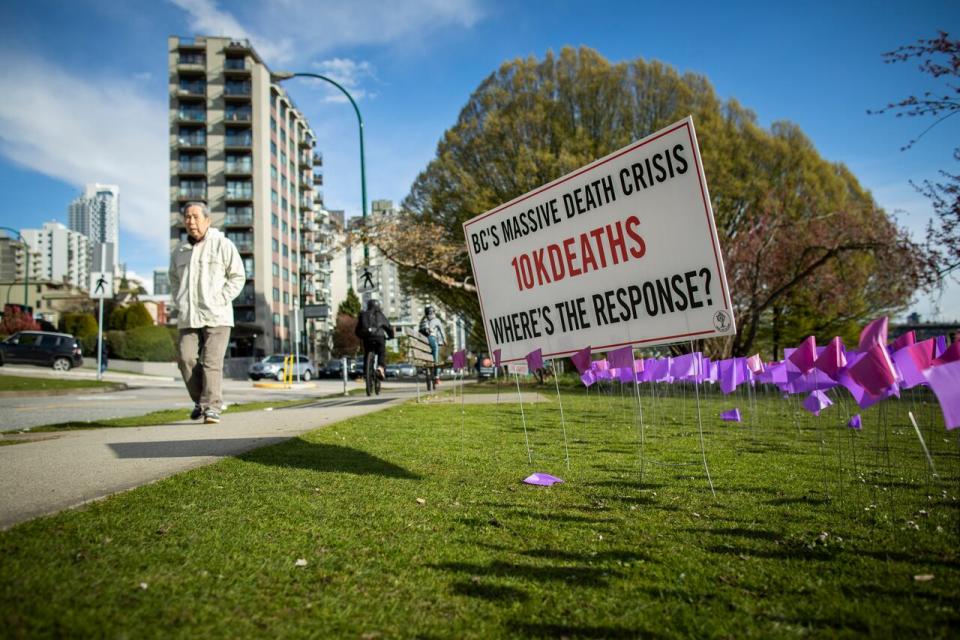
Flags that represent the lives lost due to drug overdoses are pictured during a Moms Stop The Harm memorial on the sixth anniversary of the opioid public health emergency in Vancouver on April 14, 2022. (Ben Nelms/CBC)
Harm reduction organizations across Canada, including the Vancouver Area Network of Drug Users, the Canadian Drug Policy Coalition and Moms Stop the Harm, have pledged support for DULF and for the decriminalization of safer supply initiatives.
Leslie McBain, co-founder of Moms Stop the Harm, said DULF is providing "what governments should have been providing all along."
"Many of our kids and other loved ones would be with us today had they had the service of safe substances," McBain said in an emailed statement.
For Ranger, DULF's work bridged the gap between the coroners' death panel recommendations and what's allowable under provincial and federal law.
"Groups like DULF have done exactly what the coroner's death review panel report requested," Ranger said.
"They assumed the biggest burden, and the biggest risk, to keep their communities safe, and to keep them alive."


